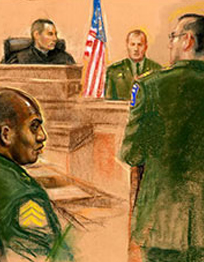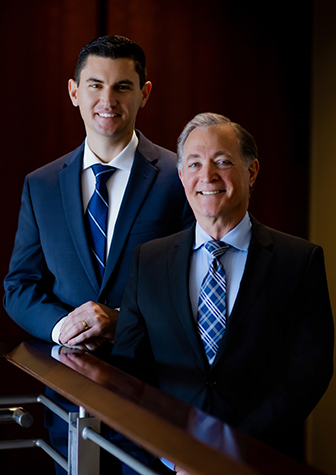Military Courts-Martial Law Overview
What are the Types of Military Courts-Martial?

Military Courts-Martial Law Overview
Military courts-martial are the cornerstone of the military justice system, serving as specialized tribunals for enforcing the Uniform Code of Military Justice (UCMJ). Understanding court-martial law is crucial for service members, as these proceedings differ significantly from civilian courts and carry potentially severe consequences, including discharge, confinement, and loss of benefits.
The military courts-martial system operates through three distinct levels, each handling different types of offenses and carrying varying levels of punishment:
- Summary Courts-Martial: Handle minor offenses with limited penalties
- Special Courts-Martial: Address intermediate-level violations
- General Courts-Martial: Reserved for the most serious military offenses
Whether facing a minor disciplinary action or serious charges, understanding the court-martial process is essential for protecting your rights and military career. This comprehensive guide examines each type of court-martial, their procedures, and the potential consequences they carry.

Article 32 Preliminary Hearings
An Article 32 Preliminary Hearing must be conducted before a case may be referred to a General Court-Martial, unless the Article 32 preliminary hearing is waived by the accused. If convicted at a General Court-Martial, the service member normally has an automatic right of appeal to his services’ court of criminal appeals in Washington, D.C.
There are Three types of Court-Martial:
Summary, Special, and General.
Summary, Special, and General.
A Court-Martial is often a life-altering and career-affecting event. A Court-Martial has the potential to take away rank, pay and freedom, and depending on the type of court-martial a conviction could result in the accused receiving a Dishonorable or a Bad Conduct Discharge. Servicemembers facing a Court-Martial should seek out the best and most experienced civilian military defense counsel they can find.
If you are accused and feeling alienated from your command, choosing an experienced and seasoned Civilian Military Attorney early on is mission-critical to obtaining the best possible outcome of your case. Unfortunately, an active duty detailed military defense attorney will not be detailed to represent you until charges have already been preferred against you – by then it is too late to receive the representation required to ensure your rights are protected during the investigative stage of the case. You have the option to consult with and hire an experienced and aggressive Civilian Military Attorney who will be completely focused on you and your case. Your future, your career, and your very freedom may hinge on you obtaining the best possible counsel for the best possible outcome.
Summary Court-Martial (SCM)
—A Summary Court-Martial offense is often compared to an “Infraction” in the civilian legal system. However, there is no equivalent judicial proceeding like a Summary Court-Martial in the civilian legal system.
Summary Court-Martial. Trial by Summary Court-Martial is generally used for minor offenses or to confront a minor incident of misconduct. A Summary Court-Martial is not considered a criminal trial and will not result in any form of criminal conviction. The Summary Court-Martial consists of one officer serving as a prosecutor, defense counsel, judge and jury. The maximum punishments are always less than those potentially imposed at a Special or a General Court-Martial, and the punishment depends on the grade of the accused. The accused has the absolute right to refuse a trial by Summary Court-Martial. Since a Summary Court-Martial is for minor offenses, the accused does not have the right to representation by a detailed military attorney. However, since the accused does have the right to testify or remain silent; to cross-examine any witnesses; and to present evidence, the accused does have a right to retain a civilian military attorney to represent them at the Summary Court-Martial.
Special Court-Martial (SPCM)
Special Court-Martial. A Special Court-Martial is the intermediate level Court-Martial between a Summary and General Court-Martial and is similar to a civilian misdemeanor court. A Special Court-Martial consists of four jury members and a military judge. The jurisdictional maximum sentence that may be adjudged at a Special Court-Martial is a Bad Conduct Discharge, reduction to the lowest enlisted pay grade (E-1), confinement for one year, and forfeiture of two-thirds pay per month for one year. An enlisted accused may request a court composed of at least one-third enlisted personnel. An enlisted or officer accused may also request trial by judge alone.
Referral To a Judge Alone Special Court-Martial
Pursuant to the Military Justice Act of 2016, effective January 1, 2019, a convening authority can also refer an accused to a Judge Alone Special Court-Martial. This is a new type of Special Court-Martial and if the case is referred to Judge Alone Special Court-Martial, then the accused will be tried and sentenced by a military judge alone. In a Judge Alone Special Court-Martial, the maximum punishment that can be awarded is limited to confinement of no more than six months, and no more than six months of forfeiture of pay. Additionally, a Bad Conduct Discharge cannot be imposed by the judge. Other lawful punishments may be imposed.
General Court-Martial (GCM)
General Court-Martial. A General Court-Martial is reserved for the more serious offenses and an accused may be sentenced to the maximum punishment allowed for a particular offense. An accused has the right to request to be tried and sentenced by a military judge alone or with a jury comprised of 8 officer members. However, an enlisted accused can request 1/3 of the members on the panel be enlisted members. If a member is excused after the jury is empaneled, the court-martial may proceed with no fewer than six members. If the maximum punishment for an offense is death and the case is referred as a capital case, then the jury must be comprised of 12 members.
Only a General Court-Martial can hear cases involving offenses under UCMJ Article 120(a) – Rape, 120(b) – Sexual Assault, 120b(a) – Rape of a Child , 120b(b) Sexual Assault of a Child, or attempts under Article 80 to commit one of the listed offenses.
—A General Court-Martial is often compared to a Felony in the civilian legal system. In a General Court-Martial, the maximum punishment is established for each offense under the Manual for Courts-Martial, and may include death (for specific offenses), confinement, a dishonorable or bad-conduct discharge for enlisted personnel, or a dismissal for officers.
Your Rights to Legal Representation in Courts-Martial
Understanding military courts-martial law is the first step – securing proper legal representation is critical for protecting your rights and future. While the military justice system provides defense counsel, you have important options to consider:
- Right to a detailed military defense attorney in General Courts-Martial
- Option to retain a civilian military defense attorney of your choice
- Ability to combine military and civilian counsel for your defense
The Importance of Early Legal Representation
Timing is crucial in courts-martial proceedings. Many service members face a critical disadvantage because detailed military defense counsel isn’t assigned until after charges are preferred. Early intervention by experienced counsel during the investigative stage can significantly impact your case outcome.
Protect Your Rights and Military Career
The Military Law Center provides experienced court-martial defense representation worldwide. Our civilian military attorneys understand the unique challenges you face and are ready to:
- Protect your rights during investigations
- Develop comprehensive defense strategies
- Guide you through the court-martial process
- Fight for the best possible outcome
Don’t wait until charges are preferred. Contact the Military Law Center today for a confidential consultation.

For A Free Consultation
Contact Us Today
Military Law Center:
Your Trusted Ally
Military Law Center is a team of experienced and aggressive civilian military defense attorneys dedicated to protecting the rights of service members facing courts-martial in California and across the nation.
